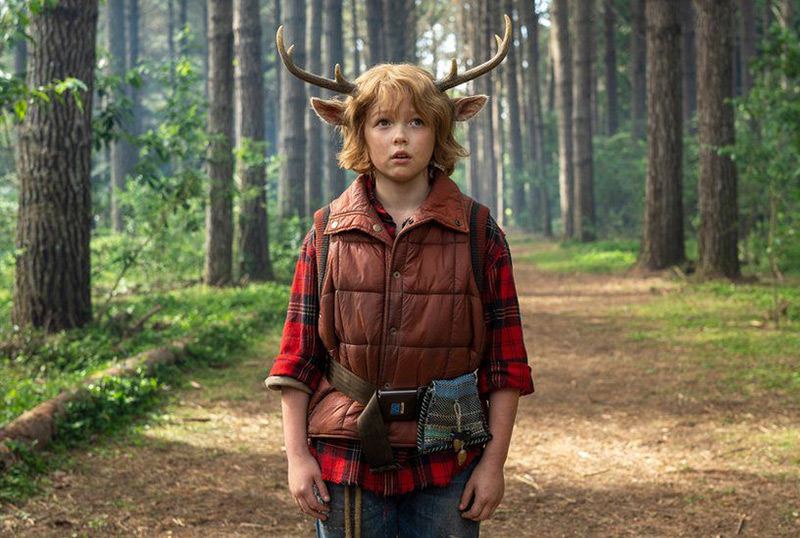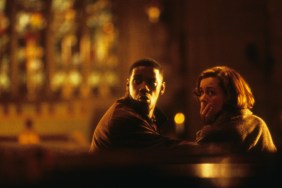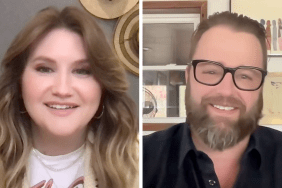Sweet Tooth is currently streaming on Netflix, which gave us the perfect opportunity to speak with series composer Jeff Grace about his approach to the show and his experience working with Howard Shore on Lord of the Rings.
Based on the beloved DC Comic series by Jeff Lemire, and Executive Produced by Susan Downey & Robert Downey Jr., Sweet Tooth is a post-apocalyptic fairytale about a hybrid deer-boy and a wandering loner who embark on an extraordinary adventure. Jeff Grace’s music can also be heard on Facebook Watch’s drama/fantasy series The Birch, starring Zaria Dotson and Brady Romberg, which is currently in its second season.
Other film and television credits include Tom Dolby’s The Artist’s Wife, Sundance TV drama series Hap and Leonard, Jim Mickle’s In the Shadow of the Moon, Cold In July, Kelly Reichardt’s Meek’s Cutoff, Night Moves, Ti West’s The House of the Devil, and The Innkeepers. Grace earned a “Best Musical Score” award for The Innkeepers at ScreamFest LA in 2009 and for The House of the Devil in 2011.
RELATED: Interview: Neil Sandilands on Playing Sweet Tooth Villain Steven Abbot
Jeff Ames: What drew you to the world of film and TV?
Jeff Grace: Well, TV just sort of happened as an outgrowth of working in film. I went to music school at Rutgers University’s Mason Gross School of the Arts. They had a great music program, a great theater program, a great visual arts program, and a great dance program. There were a fair amount of interdisciplinary activities going on between the different departments. So, that just got me thinking about using music with other art forms. And then when I got out of school, the first job I had in New York was working at a place called Ruggieri Music that did music for television – jingles and things like that. So, that was my day gig and the owner of the place, Robert Ruggieri, also wrote a lot of ballets for Alvin Ailey, American Dance Theater, and a number of other places. That just got me thinking more about how music could be used with other art forms. By night I was scoring student films around New York. I started putting up flyers at all the different film schools around the city. So, NYU, Columbia, School of Visual Arts, all those places; and then just started scoring student films.
I also had a family friend who was a composer doing mostly documentaries films. I just started seeing how working composers did it. Eventually, I started working for some bigger composers — I worked for Howard Shore for four years when he was doing Lord of the Rings and that kind of stuff. Then I worked for Angelo Badalamenti and just got to see how people went about scoring big projects.
I eventually hooked up with a company called Glass Eye Pix, filmmaker Larry Fessenden’s company. They were doing a lot of great and interesting independent films and I just kept working with them. Larry’s really good about getting the films out there and picking interesting projects. And from there, I just met a whole series of filmmakers that I still work with today.
How did your experience working with Howard Shore prepare you for the rest of your career?
It’s great to see how established people do things. There are a number of different areas where it’s really hard to get experience until you just kind of see it or until you’re kind of thrown into it. So, just to see how big projects get done was a demystification. Seeing how a director and composer communicate and talk about where music should be, what it should be doing. Seeing big recording sessions happen at big recording studios. Seeing the interaction between the studio’s music department and the composer, mixing, there are lots of different facets to it all. Some of those things I had seen before, but this was on a bigger scale.
One of the other great things was meeting a lot of people. Especially in London, I got to meet a lot of other established composers and talk to them about their process. The composing process can be different for everyone, so hearing different people talk about how they do things you can get ideas and try out the things that might work well for you.
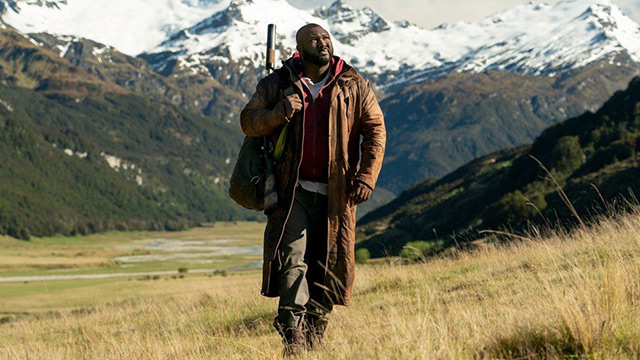
How do you believe your musical style has evolved since you first started?
I think the biggest things are probably a growth in versatility, story telling, and drawing the audience in to the experience of the film. Just getting better at the those things.
One of the reasons I got into doing music for film was because I like a lot of different styles of music. I grew up playing and listening to classical music, jazz , played in rock bands. In film and television, and now video games, you get asked to do lots of different things or even combine different styles. My interests have always run kind of wide. So, it’s fun for me to be asked to draw on all of that. When I hooked up with Larry’s company it was great because he’s an excellent filmmaker and he’s really passionate about horror. They were doing really interesting projects of all stripes, but especially horror. With the horror projects, I got to use a lot of avant garde and extended technique stuff for various instrument – modern classical music. They were also really good about putting what resources they could into getting live recording done. So, it all just gave me more and more experience.
It was also good for me to hook up with a knowledgeable filmmaker who was really experienced. He got me thinking about story telling. And their ‘horror’ projects are usually much more. They’re more like dramas that introduce a supernatural or horrific element. So, you care about the characters, which makes it that much more effective when things go wrong. But, it also calls for a wider range from the music.
I also found those films ask for a certain amount of work to be handled by the music, which was great. It taught me that, as a composer, it’s your job to bring the audience into the world of the film. All the audience really gets is two-dimensional images and sound. So, you’ve got to make up for all the other stuff that’s lacking compared to a real-life experience. Over time I’ve tried to pay more attention to drawing people in and keeping them there without hitting them over the head. It’s almost like sleight of hand. At the same time, I really hate it when I watch a film and I feel like I’m being manipulated. That just irks me. So, I try find that balance to make the whole experience feel like one engaging thing.
It’s also a little hard for me to separate my music from the evolution of the filmmakers that I’ve worked with. Because I’ve been fortunate enough to work with the same filmmakers multiple times, they’re growing as filmmakers and I’m growing as a composer as a result of the process. It’s all kind of jumbled together, but the range of the projects I’ve been asked to do has expanded over time, so my range has been challenged with that.
The first couple of films I did with Jim Mickle were horror films, at least on the label. But, what’s great about his filmmaking is it’s never just one thing. He’s very good about story and making sure all the stories have some kind of emotional impact. The reason why they’re effective is because you actually care about the characters. You get to know and relate to the character, so when something bad happens you care. Then, as his projects started branching out more and more, I think every time he just nails it. I feel like I have to be the same; I’ve got to be as effective as he is, all the while not wanting to just repeat things that we’ve done in the past.
To me, creating the right mood is really important. Finding interesting ways to do that is the tricky part of the job, but it’s also the fun part of the job. Over time, with 20 something films and a number of TV shows, I feel like the scope of things just keeps branching out.
RELATED: Neil Sandilands Was ‘Absolutely Blown Away’ By Netflix’s Sweet Tooth
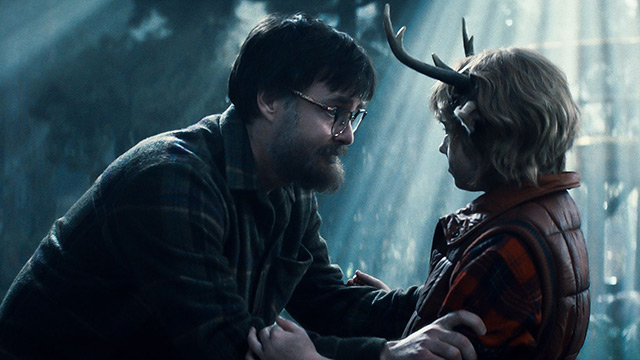
That brings us to Sweet Tooth. How did you approach this particular show with your musical style?
Early on Jim and I discussed the fairy tale aspect of the story. A half-human, half-deer kid living an isolated life in the woods with his human dad in a post-apocalyptic world. We did the pilot episode first, which deals primarily with Gus and his experience of the world up to that point. His dad would tell him of the world outside, but it was this mysterious, outside threat that he never sees.
We talked about the score needing a certain organic quality to it and a certain amount of intimacy in places. What’s the sound of looking at the world from the perspective of a very sheltered, curious kid trying to take in this strange world? At first, we were able to focus mainly on the sound of Gus and his experience of the world, just because of what happens in the pilot. But, then there is also the threat of the outside world; the darkness of humankind. At the end of the pilot, we’re introduced to another central character, Big Man. The pilot is more like a prelude to the rest of the season that then plays more like a road adventure with all these different story lines. So, the scope clearly needed to expand when we got into episode two. We thought about ways music could help connect the different story threads and what type of sounds would work for each story line. How could we have these tender and intimate moments, but also make the turns to some really horrific stuff and then keep it under the same roof. How could music work with the narration was another question.
When Gus does head out into the world, Jim talked about the collision of wonder and threat. Gus has been sheltered and is very curious and excited about this outside world he’s seeing for the first time. But, there is also potentially a threat lurking around every corner. There is also the threat to humans of this deadly virus and what crops up in the absence of civilized society. We talked about having a sort of military and industrial sound for Abbott and The Last Men. What were some common threads we could find between different storylines or characters to help link things a little more. The role of family in the various storylines was another topic of discussion.
Over the years our projects have expanded in scope. This was sort of a natural expansion in a way, but it is a bigger scope than we had done before. And the fairy tale aspect and unusual things like the hybrids were all great stuff to think about. I thought the hybrids needed to be organic sounding, but also maybe a little futuristic and even a little exotic. Then there’s the Animal Army. We wanted them to have a tribal aspect, but also a little other-worldly. Then Singh and his wife have to hide her illness from their suspicious suburban neighbors who are actually extremely barbaric. And Singh is stuck in this moral dilemma about engaging in morally questionable research, but necessary work to save his wife. Singh and Rani are also the least fairy tale-ish storyline, more like pretending to live life like before the virus destroys society. There was just a ton of great stuff to think about.
Have you given any thought as to how your music will continue in a second season, should it get the green light?
I’d be really excited to do a second season, or more – there’s so much great material in the novels. If the first season is basically a road journey, the second season would at least start with a few very big differences. They’re not on the road anymore, so what would that sound like? What would Gus’ new predicament sound like? Singh can’t hem and haw anymore – he’s got to start showing some results, even if it involves employing those extremely morally dubious tactics. The internal struggle we saw with him in season one will have to go a lot further, especially after he meets Gus. It would be fun to explore Gus interacting with other hybrids, maybe coming into some of his own, but it’s in a tough situation. That will be challenging. Big Man and Amy trying to bust their kids out. The origins story will no doubt get explored further. There’s a lot to looking forward to there.
